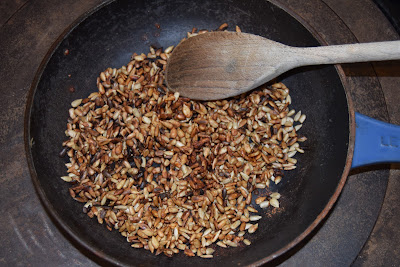79 / Potatoes
“Potatoes!”, my wife pronounced the word
conclusively, having taken a long, shrewd look at me and noting the unrelenting
progression of my cancer. Her tone
of voice brooked no argument. Implacable.
She had become convinced that potatoes were a root cause of dips
in my health. The coincidental nature of the evidence seemed to her of little import. Henceforth these traduced tubers, would
be banished from our diet on suspicion of aiding and abetting in the growth and
spread of tumours.
They would go the way that delectable ham
slices had gone many years before them. However, clinging obstinately to a silver lining I note, for as long as
I stay at this hospice, it’s possible I could have chips with almost every thing.
And it seems to me, this being a university hospital, it's far-fetched to
assume it is using noxious or harmful substances – even as an unlikely and disgraceful
long-term strategy for freeing up a few hospital beds.
To protect this delicious staple my
recourse was simple. Without delay with blind faith I dove head first into
wikipedia. As far as I can tell no
one else has yet arrived at the damning conclusion my wife had found
intuitively.
The potato, it appears, may be cleared
of all charges. Rather it is a carcinogenic
chemical compound called acrylamide that is the real culprit. It seems the
method of cooking this versatile vegetable at high temperatures is at the root
of the problem. Something called the Maillard reaction which browns cooked
foods and gives them their pleasing flavour. occurs at temperatures of over 120
degrees C. As a golden guideline the browner (and drier) the food the higher
the levels of acrylamide it will contain. Acrylamide is converted to glycidamide
in the body and can bind to DNA to cause mutation.
Along with potato chips, French fries
and crisps, important food sources of acrylamide are crackers, biscuits and bread,
breakfast cereals, canned black olives, prune juice and coffee. In 2007, an EU
report into Heat Generated, FoodToxicants, found that food (including potatoes) when exposed to a temperature of
120 degrees C, or more, contained high levels of this villainous culprit,
acrylamide. Nutritionists point out that as a general rule boiling or steaming
foodstuffs is preferable to baking or frying; and the shorter the cooking time
the healthier the victuals will remain. It is recommended further that soaking
potatoes for fifteen to thirty minutes prior to cooking will help preserve
nutrients. My wife, to whom I defer in all matters gastronomic, is therefore at
least partly vindicated. However,
Emma Shields of Cancer Research UK, adds the caveat that studies carried out on
animals are difficult to apply with accuracy to humans. She clearly needs my wife behind her to boost her confidence in her conclusions.

